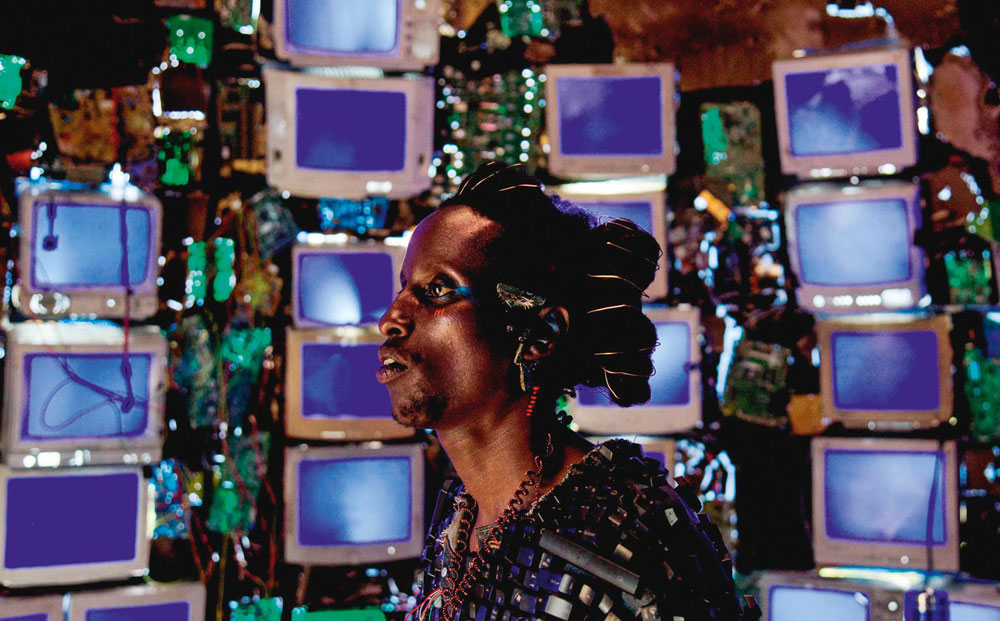Connectivity shouldn’t be as radical an idea as it appears in “Neptune Frost,” but as countries that are predominantly comprised of communities of color find themselves left out of a world that increasingly relies on the internet, it is undoubtedly an act of rebellion on the part of co-directors Saul Williams and Anisia Uzeyman that the very fabric of their invigorating musical fuses together time periods, artistic conceits and ultimately people as an example unto itself of how there’s more power collectively than could possibly be known by a one entity, or as this is put to its lead character Neptune early on, “An awareness indivisible by doubt.”
Quite literally, Neptune is seen as a connector from the film’s arresting opening frames, with Williams and Uzeyman envisioning the lead’s braids as an antenna, and perhaps the center of their own galaxy in the rings of hair, pulled towards a mine in East Africa where Matalusa (Kaya Free) makes their escape. Neptune also is about to be freed, played at first by Elvis Ngabo and then Cheryl Isheja, undergoing a transformation before the two can go on the run, ultimately looking towards disrupting a system that pays them no mind by rerouting attention to themselves after building their own points of access.
This isn’t a difficult thing to imagine for Williams, who has been getting people to take notice of him since he starred in “Slam,” channeling the energy he brought to live performances of his poetry into film and with Uzeyman, he takes the base of an old-fashioned musical as characters express the thoughts in song that they can’t bring themselves to speak in words and rejuvenates it when the music flows so freely and fluidly that freedom isn’t limited to the themes of a song but the form it takes, making for galvanizing sequences such as when a protest chant from the mines carry over into a hum on the streets of a village and back out of the mouths of students shouting at a campus rally that is no mere montage, instead showing how far an idea can travel and the adaptations it makes.
While Neptune can be heard telling someone, “We choose dimensions like cities to live in” — and indeed, the film certainly feels as if it refuses to be constrained to any particular realm — Williams and Uzeyman take great pains to keep on conscious of the film’s setting on this earth, applying a bespoke human touch to this future where the largely electronic score is pierced by the sound of hands hitting drums and Matalusa can be seen donning a jacket made completely of old computer keys. For as much shape-shifting happens in “Neptune Frost,” where old forms of oppression find their way into a digital world and people take advantage of their newfound freedom of mind to reinvent themselves, it’s a basic appreciation for the ingenuity of the filmmaking and the ability to marshal so many disparate elements as part of a greater whole that becomes so relatable and moving when the production mirrors a world that may present itself as complicated, but just looking within to see what strength we have at our fingertips is mighty.
“Neptune Frost” will screen at Cannes as part of Directors’ Fortnight on July 13th at 11:30 at Arcades 1, noon at Alexandre III and 3 pm at Studio 13 and July 14th at 10 am at Le Raimu.




